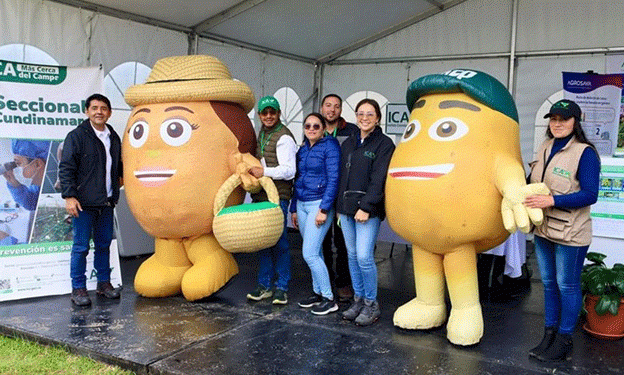The First National Potato Fair in Colombia was not just an event but a landmark gathering that brought together nearly 10,000 people, all united by the shared goal of transforming the potato sector. Organized by the Colombian Federation of Potato Producers (Fedepapa) and held in a region renowned for its high potato output, this fair provided a space for farmers, agronomists, agricultural engineers, scientists, and industry stakeholders to exchange knowledge and explore innovations in the field.
The Socioeconomic Importance of Potatoes in Colombia
Potatoes are a cornerstone of Colombian agriculture, playing a vital role in the livelihoods of over 100,000 farming families. The crop is particularly significant in eight departments, with Cundinamarca, Boyacá, Nariño, and Antioquia leading production. Many of these potato farmers are smallholders, often cultivating plots of less than a hectare. For these communities, potatoes are more than just a crop—they are an economic lifeline and a key to food security.
Recognizing this importance, the Colombian Agricultural Institute (ICA) participated actively in the fair. ICA representatives shared critical educational resources on agricultural best practices and hosted workshops on preventing and eradicating potato diseases, such as the “purple tip” disorder caused by the pest Bactericera cockerelli. ICA also highlighted its ongoing efforts to support potato farmers through site visits, phytosanitary campaigns, and risk communication workshops.
Academic and Research Contributions
A major component of the fair was the academic agenda, where scientists and agricultural experts presented findings on innovative farming techniques, pest management, and crop resilience. Sessions also included updates on research efforts aimed at boosting yields and reducing crop loss. One focus area was the dissemination of knowledge about sustainable practices that not only enhance productivity but also ensure environmental stewardship. These discussions are crucial as Colombia seeks to strengthen its agricultural sector and meet national food security goals.
Ensuring Crop Health and Food Safety
In 2024, ICA has organized 19 risk communication events in Cundinamarca alone, attended by 213 individuals from the potato sector. The emphasis has been on understanding and controlling Bactericera cockerelli, a significant vector for the purple tip disease. These educational initiatives are part of a broader strategy to ensure the phytosanitary conditions necessary for safe and healthy potato crops.
In addition to pest management, ICA has been proactive in the area of certified seed production. This year, 137 inspections have been conducted on registered seed lots, and 103 applications for certified seed production have been processed in Cundinamarca. The emphasis on high-quality seed is essential for improving crop yields and ensuring the resilience of the potato supply chain.
Government and Institutional Support
The Colombian Ministry of Agriculture, in partnership with ICA, continues to invest in the potato sector. Strategic alliances have been formed with research institutions like Agrosavia, regional authorities, and farmer associations to support ongoing agricultural transformation. These collaborations aim to enhance crop health, improve farmer education, and secure the future of Colombia’s potato production. Ensuring food security and striving for zero hunger are central pillars of these initiatives.
The First National Potato Fair has underscored the immense potential of Colombia’s potato sector. By fostering collaboration, disseminating knowledge, and promoting sustainable practices, the event has laid a foundation for continued growth. With strategic government support and active engagement from the agricultural community, Colombia is well on its way to transforming its potato industry into a more resilient and prosperous sector.







